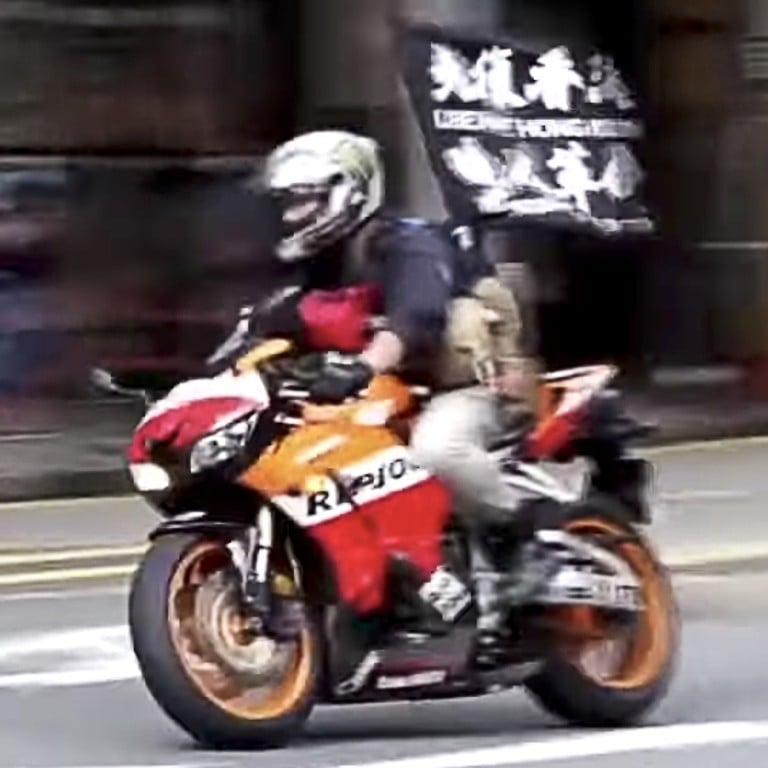
Hong Kong national security law: first person to stand trial found guilty of terrorism, inciting secession
- Leon Tong, 24, rammed his motorcycle into three police officers while carrying flag calling for city’s ‘liberation’ during a July 1 rally
- Police are investigating reports of threatening phone call targeting three High Court judges in case, according to source
A panel of three High Court judges appointed by the city’s leader ruled on Tuesday that Leon Tong Ying-kit had incited separatism by displaying the signature rallying call of the 2019 anti-government protests, “Liberate Hong Kong; revolution of our times”, when he took to the streets of Wan Chai during a July 1 rally in 2020.
The judges concluded that the 24-year-old former restaurant worker had also caused great harm to society by inflicting grave injuries on three police officers who tried to block him after he ignored repeated warnings to stop.
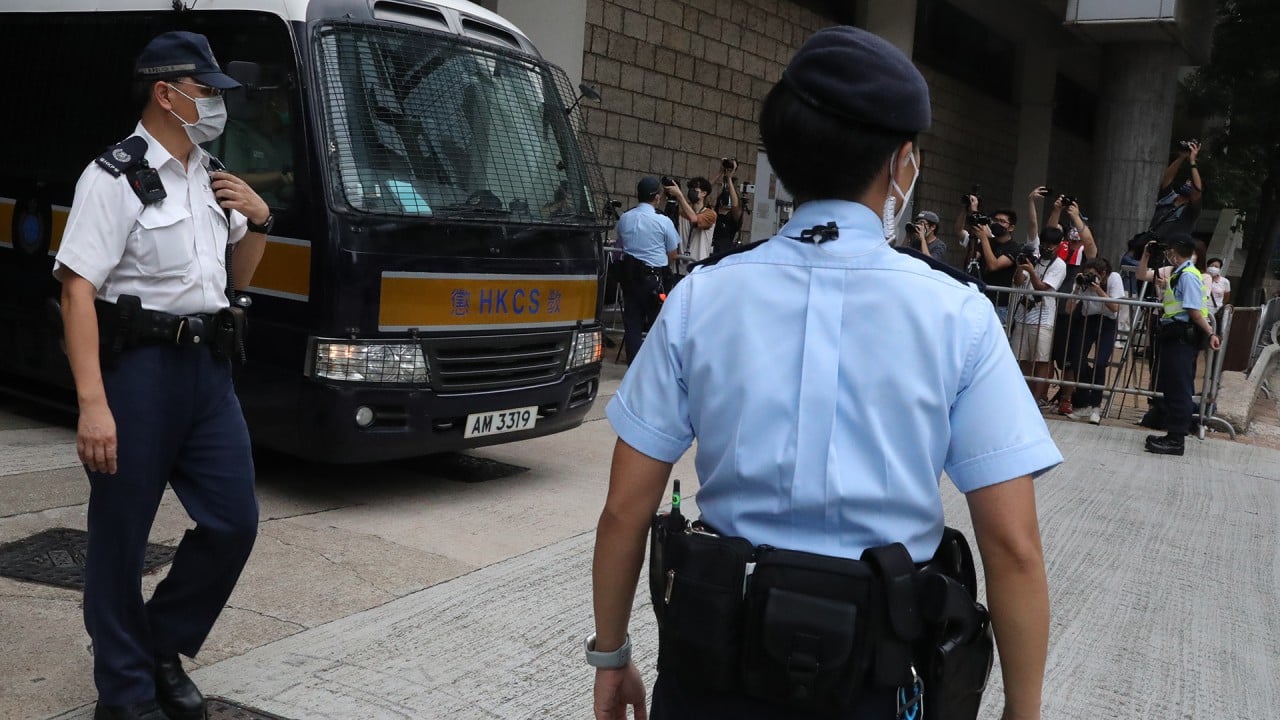
02:10
Man found guilty in Hong Kong’s first national security law trial
In another development, a police source said the force was investigating reports of a menacing phone call targeting the judges.
After the verdict was handed down, according to the insider, a judiciary employee received a call at around 5pm from a man who said he would launch a bomb attack on Justice Esther Toh Lye-ping. He also blasted the other two judges and threatened to slash them with knives.
In a late-night statement, the Department of Justice said judges had to handle cases in accordance with the law and evidence without any intervention. It added the government would not tolerate acts that harmed the rule of law when judges were being threatened because of their legal duties.
High Court readies landmark ruling in national security trial
Legal experts, meanwhile, said the ruling would have a far-reaching impact on future national security cases, and advised the public not to promote the protest slogan or other chants that might be linked to secession.
Toh said the judges were satisfied the slogan was capable of inciting others to commit the crime of secession “having regard to the natural and reasonable effect of displaying the flag” and “in the particular circumstances of the case”.
“When the defendant displayed the slogan in the manner he did, he intended to communicate the secessionist meaning of the slogan to others and he intended to incite others to commit secession by separating the [Hong Kong Special Administrative Region] from the [People’s Republic of China],” Toh said.
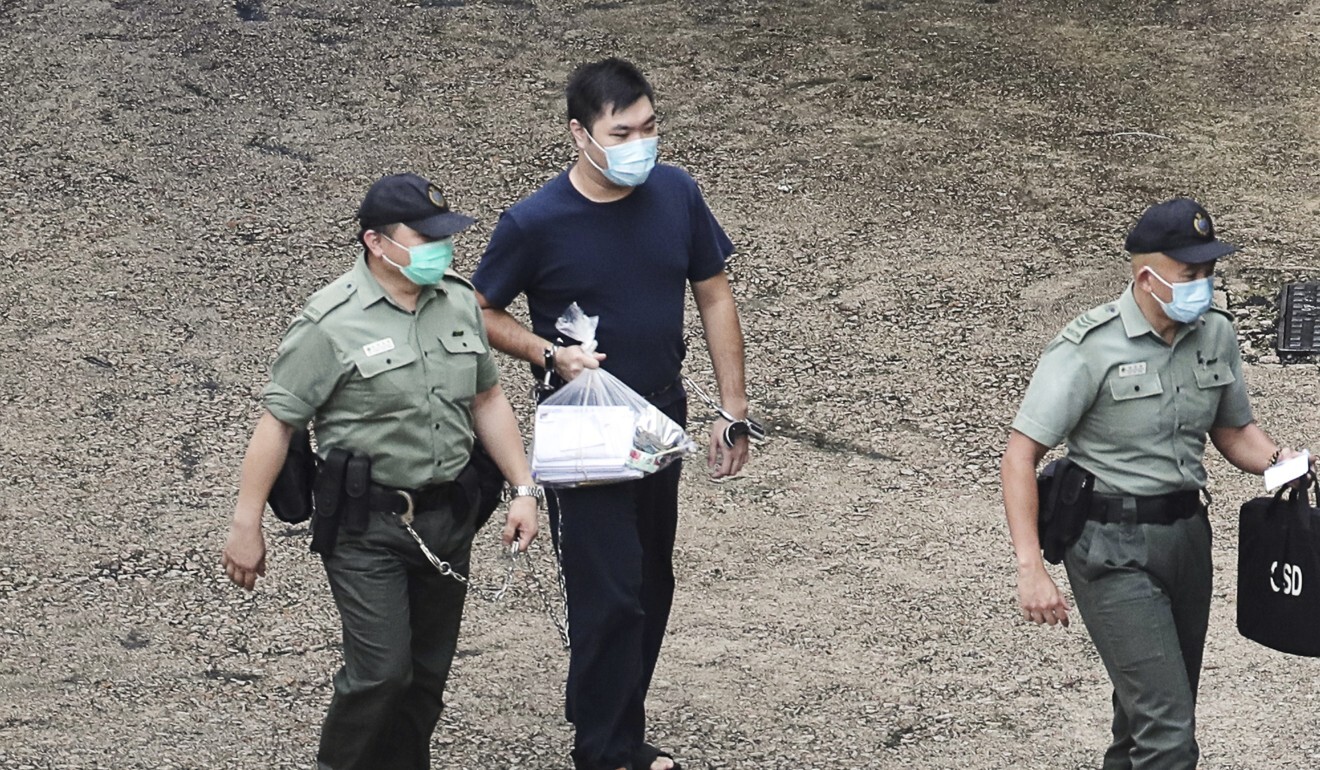
The three judges also found the defendant’s failure to stop at the police check lines, eventually crashing into the three officers, was “a deliberate challenge mounted against the police, a symbol of Hong Kong’s law and order”.
“The defendant’s acts were acts involving serious violence against persons and/or were dangerous activities which seriously jeopardised public safety or security,” Toh said.
“The defendant’s act had caused grave harm to the society. The defendant carried out those acts with a view to intimidating the public in order to pursue his political agenda. Accordingly, we convict the defendant of both counts.”
In their 62-page ruling, the three judges rejected the defence experts’ argument that the slogan in question could be interpreted in multiple ways. They said the court was only concerned with whether the words were capable of inciting separatism after considering the manner in which Tong had displayed it in public.
The judging panel noted all three experts from both sides had agreed that the rallying call, first popularised by jailed pro-independence activist Edward Leung Tin-kei during his Legislative Council campaign in 2016, was capable of bearing a secessionist meaning.
The judges pointed out that Tong had deliberately picked July 1, the anniversary of Hong Kong’s return to Chinese sovereignty, and the second day since the security law came into effect, to commit his crime.
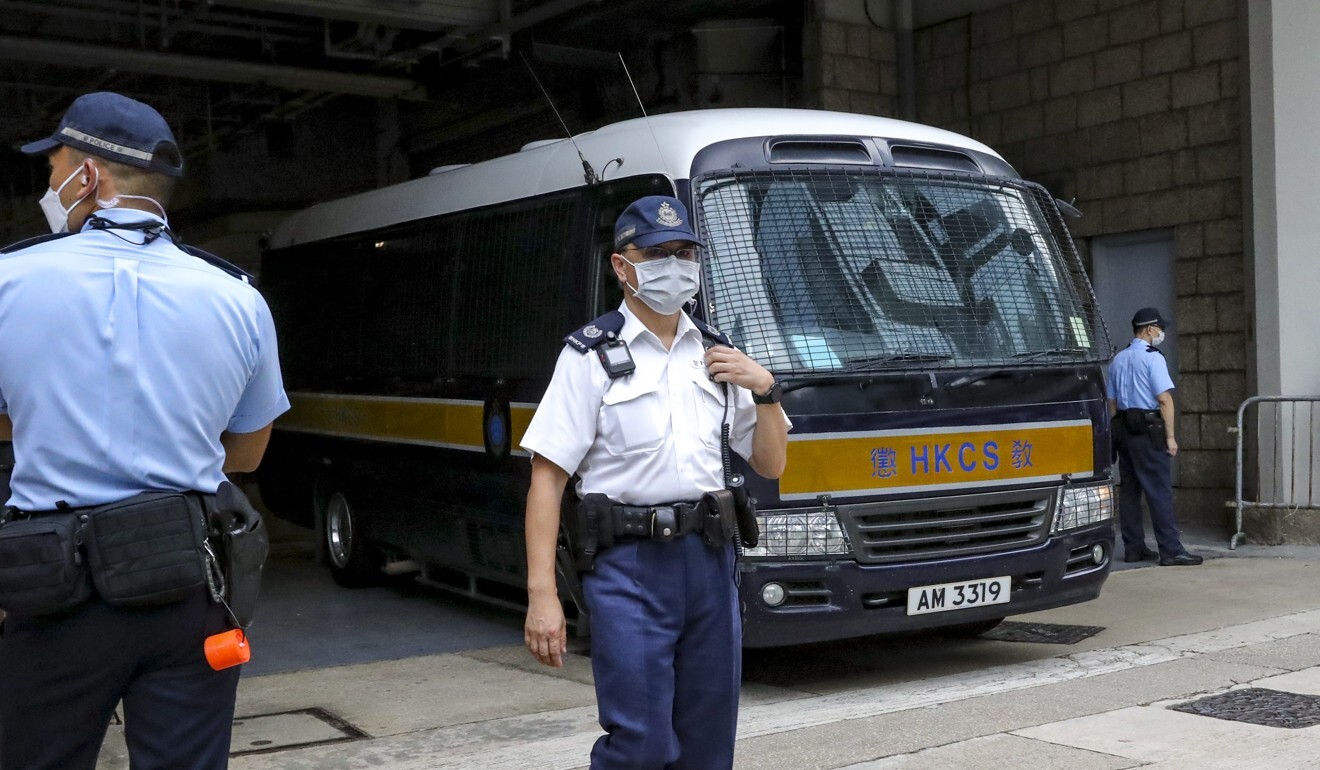
They said he had mounted the flag with the slogan on the boot of his motorcycle in a bid to attract the attention of as many people as possible and leave a great impact and strong impression on them.
In convicting him on the terrorism charge, the panel dismissed the defence argument that Tong had been avoiding police when he sped past two check points before hitting a third.
The judges decided instead that he must have been directing his actions against police and at the same time parading around the area with the slogan-bearing flag on his back.
Although video evidence suggested Tong had applied the brakes in a split second before the impact, the panel said the collision was inevitable at the time he perceived the danger of ploughing into the officers.
Beijing moves official to Hong Kong to ‘coordinate security agencies’
Since the collision was bound to happen, the judges concluded, they also rejected Tong’s defence that he had been distracted by an officer at the scene who appeared to have thrown a shield at him just before the crash.
The defence had argued the defendant acted like an ordinary member of society at times that day, such as stopping at traffic lights and carrying first aid items with him.
The judges, however, found it unhelpful to take “bits and pieces out of the entire picture of what the defendant did on that day”, as there was no so-called protocol to follow when a person was going to engage in terrorist activities.
“The situation may be so volatile that the person may just need to blend in with the ordinary members of the community or to act perfectly normally at times,” the judges said.
While the panel had reservations as to whether Tong had intended to coerce the Beijing or Hong Kong governments, it still found he had intended to intimidate the public by seeking to contain or suppress people with opposing political views.
“A blatant and serious challenge mounted against the police force which is charged with the responsibility of maintaining public safety and security, and thus a symbol of law and order, will certainly instill a sense of fear amongst the law-abiding members of the public, in particular, apprehension of a breakdown of a safe and peaceful society into a lawless one,” the judgment concluded.
The ruling, following a 15-day trial, came almost 13 months after the security law took effect on June 30 last year.
Hong Kong police question journalist who live-streamed officer’s stabbing
The prosecution had argued earlier that Tong intentionally displayed the slogan-bearing flag in a high-profile fashion to attract media attention and encourage others to break the law, which Beijing had imposed only the night before.
Tong also aimed to cause serious harm to society by ramming his way through multiple police roadblocks and causing serious injuries to officers to further his push for the city’s independence, the court was told.
The defence had countered that the collision was accidental, and that the rallying cry was ambiguous and did not necessarily carry a political message.
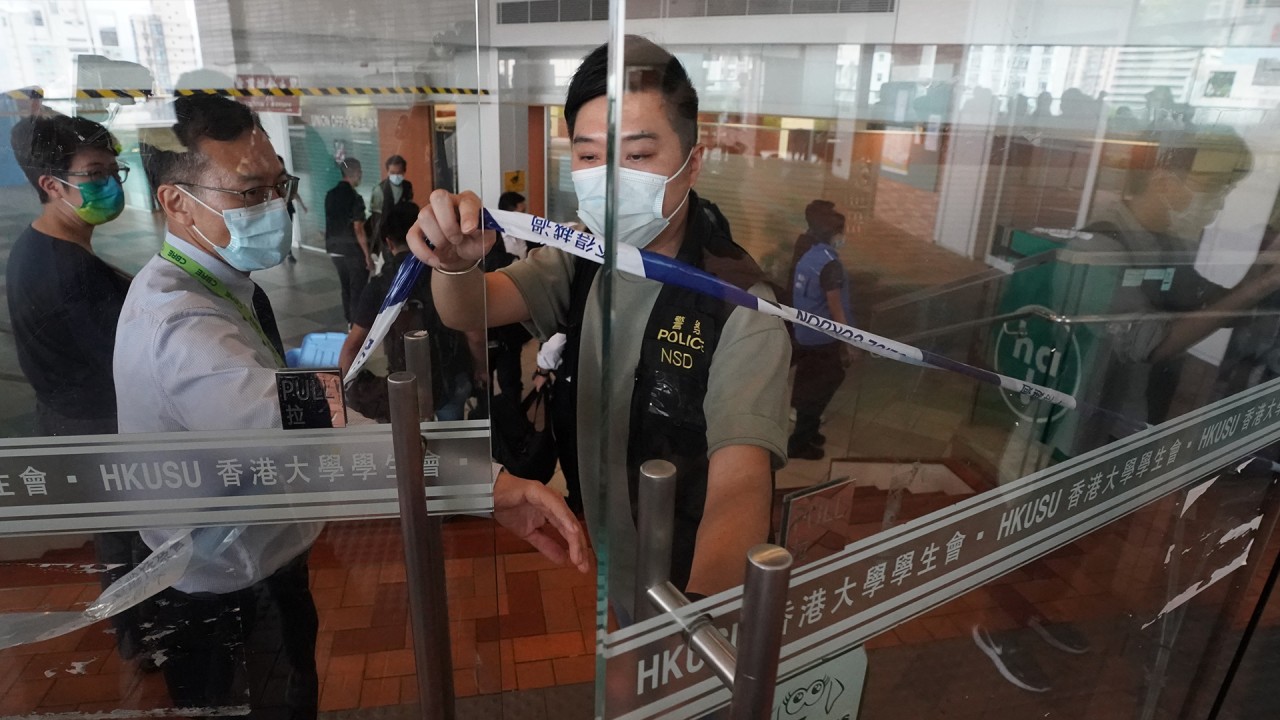
03:01
National security police raid university student union over support of man who stabbed officer
Prosecutor Anthony Chau Tin-hang on Tuesday said the justice department would apply to confiscate Tong’s motorcycle and suspend his driving licence at the next hearing.
Defence counsel Clive Grossman SC, meanwhile, revealed he had “quite a lot of letters from people” pleading for leniency for his client.
The court will hear mitigation on Thursday.
The crime of secession carries a maximum sentence of life imprisonment. Terrorism carries a minimum jail sentence of 10 years which can be extended to life if the person convicted causes “serious bodily injury, death or significant loss of public or private property”.
Incitement to commit secession is punishable by a fixed jail term of five to 10 years for serious offenders, and not more than five years if the crime is deemed to be minor.
Barrister Ronny Tong Ka-wah, an adviser to the government in the Executive Council, reminded the public not to display the “Liberate Hong Kong” slogan in public to avoid getting into trouble.
Professor Song Sio-chong, of Shenzhen University’s Centre for Basic Laws of Hong Kong and Macau, said the case would have far-reaching implications, as other popular protest chants challenging the local and central governments, such as “five demands, not one less”, might also be deemed offences under the national security law.
Human rights lawyer Mark Daly said the verdict was another blow to freedom of expression.
“People should be able to make political speeches, and so the balance here doesn’t seem to be right in the sense that it is going to have a chilling effect because of the vague nature of the law,” he said.
Additional reporting by Lilian Cheng
